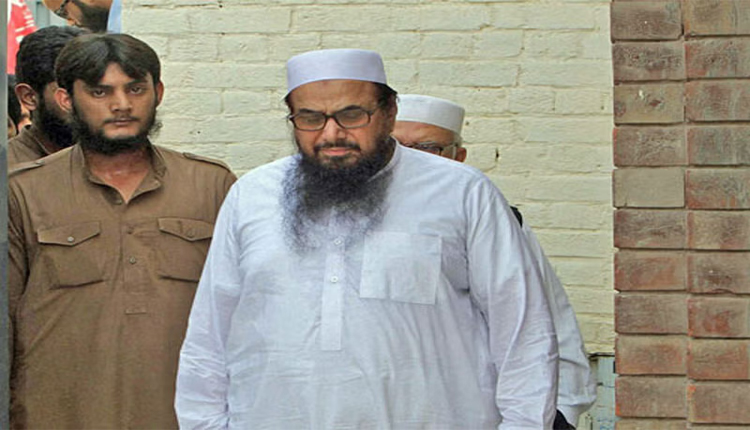Lahore: The rise in tensions between India and Pakistan forced Pakistani authorities to boost surveillance of Hafiz Saeed since he directs the terrorist organisations Lashkar-e-Taiba alongside Jamaat-ud-Dawa. The Times of India reported that to protect Saeed, Pakistani authorities have improved his security measures and hidden him in a different location as India looks to target the serial terrorist leader.
According to The Times of India, through their sources, Saeed relocated to the densely inhabited Mohalla Johar district in Lahore’s residential section. The selection of this residential area between religious institutions serves a purpose to make military interventions difficult. Official records show Saeed is under incarceration, but he actually lives in a “sub-gaol,” labelled as his temporary housing. Extensive monitoring exists in the surveillance area where gesture-detection CCTV cameras operate from a control room that tracks all activities within a one-kilometre distance. Former Special Service Group commandos have been placed at the duty of guarding Hafiz Saeed to ensure his protection.
Hafiz Saeed’s Persistent Terror Activities
Saeed continues his leading position in international terrorism operations at age 77. International experts identify him as the main orchestrator of the 2008 Mumbai attacks that took 166 lives, and he has connections to the April 22 Pahalgam terror incident in Jammu and Kashmir that killed 26 civilians. The anti-Indian Resistance Front declared responsibility for the Pahalgam killings even though Indian security forces directly connected Hafiz Saeed to the operation. The terrorist Zakiur Rehman Lakhvi has managed to appear in public over twenty-four times during the past three years even though Pakistani courts sentenced him to 46 years in prison for terror financing crimes. The Pakistan security forces provide his protection as he continues to lead visits to terror bases in Pakistan-occupied Kashmir and to camps located in Muridke, Bahawalpur and Rawalakot.
Heightened India-Pakistan Tensions
Pakistan raised Saeed’s security levels because they believe India may hide dangerous plans for Kashmir following substantial attacks on both countries since the 2019 Pulwama operation in Jammu and Kashmir. The Indian government has charged Pakistan with terrorism, but Pakistan denies this accusation while sharing information about alleged upcoming Indian military operations. These retaliations from India comprise analysing the Indus Water Treaty combined with Pakistani flight airspace bans and increased troop actions at the Line of Control (LoC). Pakistan placed Saeed in a highly populated civilian enclave as part of its plan to prevent any planned military attacks.
The official arrest of Saeed in 2019 fails to explain why he enjoys unhindered movement since this suggests Pakistan does not intend to minimise violent extremism. The compound where he lives has been transformed into a protected complex containing a mosque, private park and education institute which is secured by numerous guards. The Pahalgam killings prompted the Lawrence Bishnoi gang to threaten Saeed, and this escalation in threats has made Pakistan extremely vigilant because the gang vows to strike a high-value Pakistani target. The ongoing poor condition of India-Pakistan relations makes Saeed’s protected status a central issue between these two countries.



Comments are closed.